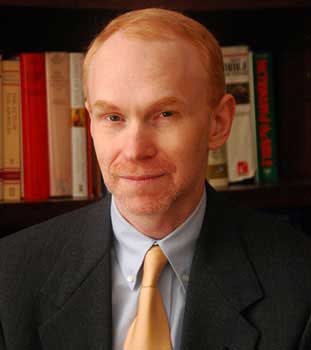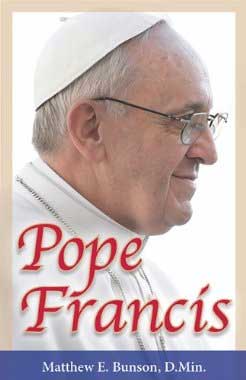 It was great to discuss with Dr. Matthew Bunson the interviews given by Pope Francis to America Magazine and La Republicca . We discuss the poor translations, issues which have arisen from some of the “statements”, and the reaction of Catholics to this new “genre” of papal reporting. Dr. Bunson is a master of seeing through the fog to the heart of the matter. Great insights!!!
It was great to discuss with Dr. Matthew Bunson the interviews given by Pope Francis to America Magazine and La Republicca . We discuss the poor translations, issues which have arisen from some of the “statements”, and the reaction of Catholics to this new “genre” of papal reporting. Dr. Bunson is a master of seeing through the fog to the heart of the matter. Great insights!!!
Podcast: Play in new window | Download (Duration: 27:31 — 12.6MB) | Embed
Subscribe: Apple Podcasts | Spotify | Amazon Music | Android | Pandora | iHeartRadio | JioSaavn | Podchaser | Gaana | Podcast Index | Email | TuneIn | Deezer | Anghami | RSS | More
You can find the book here
For the outstanding article from the OSV Newsweekly authored by Dr. Bunson:
Interview reveals discerning, transparent pontiff
Looking past sensational headlines, it gives insights into his ideas for governance, plans for reform
By Matthew Bunson – OSV Newsweekly, 10/6/2013
The interview was conducted by editor-in-chief of Jesuit journal La Civiltà Cattolica, Jesuit Father Antonio Spadaro. CNS photo The flurry of misinterpretation in the secular media following the Sept. 19 publication of a 12,000-word interview with Pope Francis in America magazineand other Jesuit journals around the world was hardly surprising. Conducted over the course of three sessions in August with Jesuit Father Antonio Spadaro, editor-in-chief of La Civiltà Cattolica, the Italian Jesuit journal, the interview sparked eye-grabbing headlines that painted a false narrative that the pope was somehow declaring the Church’s teachings on abortion, homosexuality and sexual ethics to be no longer relevant.
Incidentally, Pope Francis’ remarks the next day to a group of obstetricians and gynecologists, in which he strongly spoke out against an anti-life culture, threw the secular media for a loop.
A further effect of the brief sensation resulting from the interview, though, was the unfortunate overshadowing of the rest of the deeply personal, transparent and all-around remarkable conversation.
Ideas of government
The wide-ranging questions prompted some profound insights by the pope and also uncovered further aspects of his personality and his formation as a priest and one of the most intensely pastoral pontiffs in living memory.
Curial Changes Perhaps most significantly, Pope Francis spoke of his much anticipated reform of the Roman Curia. He reiterated his concern that the Vatican offices must be at the service of the pope and the bishops, but he likewise envisions a decentralization of some aspects of governance, including assessments of orthodoxy in the writings of Catholic theologians as he considers these concerns more the purview of the local bishops’ conferences, which can receive assistance from Rome.
“These cases,” the pope said, “are much better dealt with locally. The Roman congregations are mediators; they are not middlemen or managers.”
The pope judges the relationship between the Roman Curia and the bishops from the perspective of a unity that can lead the Church to “grow in harmony with the service of primacy.”
This approach underscores a style of papal governance born out of his experience as head of the Argentinian Jesuits in the 1970s and his St. Ignatius of Loyola-inspired gifts of discernment.
Aware of his own “authoritarian and quick manner of making decisions,” he is determined as pope to be open to consultation and dialogue. Toward that end, he made clear in the interview that he desires to change the ways that the meetings of cardinals and the synod of bishops function to make them places of “real and active consultation,” and the informal advisory council of eight cardinals from around the world is for him an example of consultation that is genuine and “not merely ceremonial.”
Need for discernment
Francis is aware that time is needed to achieve real, effective change. And this must be a time of discernment. Sometimes, he said, that process of discernment urges us to do exactly what had been considered as the right course of action at the start, but it is still crucial to his decision-making, especially as it comes only after long prayer and reflection.
“Discernment,” Francis said, “is always done in the presence of the Lord, looking at the signs, listening to the things that happen, the feeling of the people, especially the poor…. Discernment in the Lord guides me in my way of governing.”
This consultative method shows that discernment is a pillar of the pope’s prayer life, but it also comes from his deep humility. When asked the first question in the interview, “Who is Jorge Mario Bergoglio?” he replied, “I am a sinner. This is the most accurate definition. It is not a figure of speech, a literary genre. I am a sinner.”
He then returned to one of the key words of the pontificate: mercy. In seeing himself as a sinner, he spoke bluntly of the need to make the first proclamation always that Jesus has saved us and to remind the ministers of the Church that they must be “ministers of mercy above all.” He pointed to the danger facing the priest in the confessional of being either too much of a rigorist or too lax.
“Neither is merciful,” he said, “because neither of them really takes responsibility for the person. The rigorist washes his hands so that he leaves it to the commandment. The loose minister washes his hands by simply saying, ‘This is not a sin.’”
A transparent pope
In more personal matters, Pope Francis confirmed, for example, that he was drawn to the Society of Jesus because of its missionary spirit, its community life and its discipline. The latter was a strange discovery, he said, because he considers himself “a really, really undisciplined person” who has mastered the discipline of discernment through long years of study in the spiritual school of St. Ignatius, Jesuit founder.
His stated desire for community is likewise significant because it confirms once again that it was at the heart of his decision not to reside in the apostolic palace in the Vatican but to live instead in the Domus Sancta Marthae, the Vatican hotel that housed the cardinals during the conclave. He described the papal palace as “old, tastefully decorated and large, but not luxurious,” but for him it is “like an inverted funnel” with an entrance that is very limiting to a sense of community.
“People can come only in dribs and drabs,” he said, “and I cannot live without people.”
The artistic and literary references that he made throughout the interview reveal a mind very much engaged with the wider culture. He is already famous for reading the Russian writer Fyodor Dostoevsky and the German lyric poet Friedrich Hölderlin, but we learned in the interview that he has read the 1827 novel “The Betrothed,” by the poet and novelist Alessandro Manzoni, three times, and has it on his table to read again. Like Pope Emeritus Benedict XVI, Pope Francis adores Mozart, but he also listens to Beethoven, Bach’s Passions and Richard Wagner’s epic operas the “Ring Cycle” and “Parsifal.” Francis discussed as well his admiration for the painters Caravaggio and Marc Chagall and the films of the Italian director Federico Fellini.
What’s to come
Looking at the interview, Catholics can conclude that Pope Francis is resolutely committed to his style of leadership. He will not abandon his fidelity to a pastoral pontificate that proclaims God’s loving mercy to a spiritually wounded modernity, and he will push ahead with his reforms of the Curia at his own pace of discernment.
Look for the meeting of the cardinals in October for signs of impending changes to how the College of Cardinals does its business, and Francis will likely soon be reforming the Synod of Bishops as well.
In the longer term, the pace of reform will seem slow, but Francis may very well be crafting a spiritual and institutional renewal of the papacy that will be felt for many years to come.
Matthew Bunson is OSV senior correspondent.
Newsletter Subscriptions
If you liked this article, you can sign up to receive free weekly newsletters.




Best interview on this topic I’ve heard! Better than EWTN’s recent World Over interview w Dr. Robert Royal and Fr. Joseph Fessio! And this is a real compliment, meant sincerely! I’ve sent this to my adult daughter, who seems to have listened to the spins. Thank you!!! I will pray this gets wider play. It was very clarifying and affirming!
One more thought…maybe the Holy Spirit chose Pope Francis to remind us that the Holy Father is Jesus’ representative here on earth. But unless he is speaking ex cathedra, he is not Jesus. Like the rest of us, he is a human being – and is in need of our prayers!!! Pope Francis asked for our prayers on the balcony the night he was introduced in his new role. Maybe we need to take his request more seriously?!
PS. Maybe this is also a time to present more teachings on St. Peter, who also knew his own weakness. Y’all have so many learned guest speakers and regulars. I know you must have someone who can address this question. I look forward to this presentation in the near future!